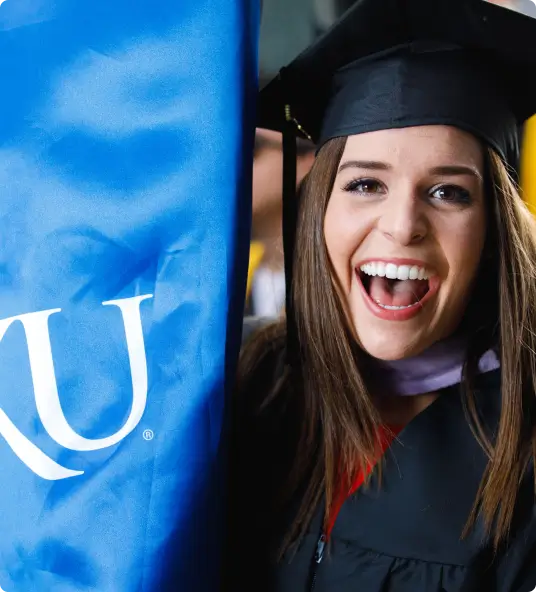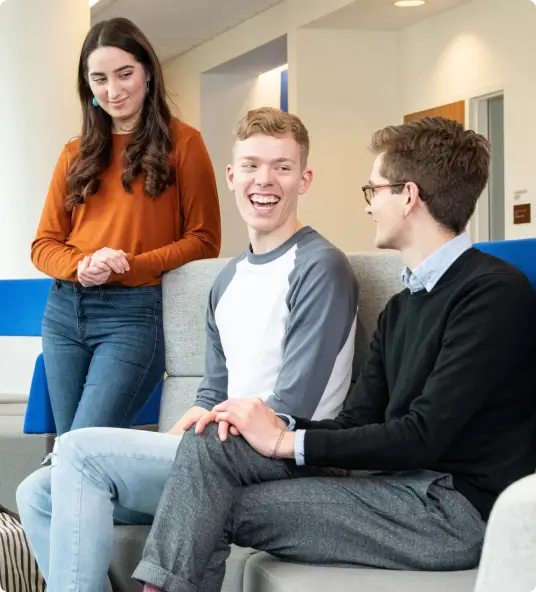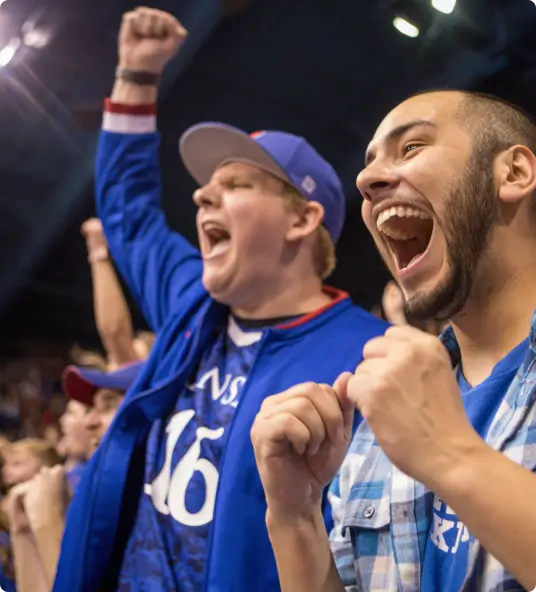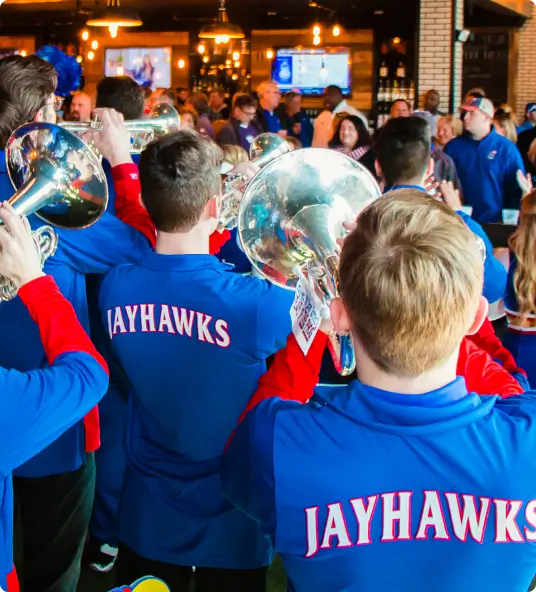ALUMNI, HOMEPAGE NEWS
It started as a simple idea: donate pizza to the lab workers processing COVID-19 tests at the University of Washington’s virology labs.
But for Ellen Kuwana, c’92, her plan to utilize her lab experience to safely deliver food to health care workers in her free time continued to grow. A side hustle turned into a full-time commitment on weekends and eventually led Kuwana to quit her full-time job to focus on supporting both front-line workers and local restaurants in the Seattle area.
Kuwana, a freelance science writer, launched We Got This Seattle to spend her workdays coordinating donations, picking up food from Seattle-area businesses, and bringing the food to lab workers and other health care personnel.
The daughter of a KU chemistry professor, Kuwana graduated from the University with a biology degree before earning her master’s degree at UC San Francisco, where she also worked in research labs. Since then, she’s called Seattle home.
"I would not have embarked on this road had I not been a scientist by training."
How did We Got This Seattle grow from a one-time idea to a full-time job?
“I would not have embarked on this road had I not been a scientist by training. In January and February 2020, I was spending a lot of time on Twitter following science journalists discussing the situation in China and Italy with the novel coronavirus. Most of our friends, in part because my husband is an MD–PhD, are in science or medicine.
I knew UW Virology was working around the clock, literally 24–7 to process the COVID-19 tests, with 80 people per shift. Health care workers are a visible workforce who get recognition for their work, and I felt the lab personnel deserved some recognition for their part in keeping everyone safe. I tweeted out to three local pizza places, asking who wanted to help me send pizzas as a thank you to UW Virology. I got a donation from one within three minutes. I figured that I could deliver the food safer than a random driver because of my lab training. You learn to not touch your face, and to be very aware of what you are touching, as well as how to properly put on and remove protective gear.
With my husband working six days a week in a hospital, I could not completely keep myself safe, so I decided to do some good with an amount of risk that I was qualified to mitigate to the extent possible. I was working two jobs at the time, and delivering food on Friday, Saturday and Sunday when I wasn’t working my main job.
This was really just me from March 13 to April 4. Then Signe Burke, who works full time at Amazon, contacted me and wanted to help. She’s been a lifesaver and has helped me with fundraising and tracking the eight to 10 deliveries each day. On April 1, I got a little scared for my safety and hired two college students to help me with picking up and delivering food, as a way to lower my personal risk of getting sick. This was out of concern for myself, but also to protect my husband’s well-being as much as possible, as he is an essential worker.
On April 10, I quit my job, because this effort was taking 40 to 50 hours a week. It was a tough decision in many ways to quit and fill that time with unpaid volunteer work, yet it also felt right. Sometimes you just know. At the same time I was deciding to quit my job, restaurants had closed. So what began as a gesture of appreciation, delivering food, became a lifeline of meals.”
What’s your relationship with the restaurants?
“The first few meals were donated, but as restaurants went takeout-only and offices and the University of Washington closed, revenue was down 80 to 90 percent for most restaurants. I set up a personal Facebook fundraiser and raised $25,000, then found a 501(c)(3) called Open Collective and connected that to the WeGotThisSeattle.co website so that people could make tax-deductible donations with 100 percent of funds going to local restaurants. I find out what front-line sites need, order from one of 65 plus restaurants I’m working with, pick up the food, and deliver it to a point person at a hospital, clinic, firehouse, homeless shelter, ambulance company, etc. I took the same work ethic and sense of professionalism into this volunteer effort as I would into a $1 million-dollar grant-funded research project.
I didn’t set out to do this—it just snowballed and the need was there. Not only did people in hospitals and labs need meals, but also restaurants desperately needed the business. Almost all have given me some kind of discount, and a few have been able to make rent or bring back a few workers because of the support of We Got This Seattle. The journalist in me loves asking questions, which is how I found out that one Thai restaurant that contacted me and donated two meals were $1500 behind on rent! I made it a point to order more meals from this Thai restaurant and got them enough business that they could pay rent on time. It was a win-win. So our mission statement reflects the importance of supporting local restaurants: Our dual mission is to support our front-line workers and local restaurants during times of crisis, such as the COVID-19 pandemic.
And I know it’s meant a lot to the restaurants. One other component of this project is that Seattle has a vibrant Chinatown–International District, and we often go there for food. There are wonderful gift stores and a strong sense of history that you can sense and touch. There have been racist incidents: windows broken, graffiti, business owners threatened. It became important for me to order from many restaurants there as a show of support (and who doesn’t love Chinese food after a long day at work?). Everyone is trying to help each other. Every one of those restaurants has discounted the boxed meals for We Got This Seattle. They suggest other restaurants I should support, if I can. It’s a great community, and I hope everyone weathers this tough time.”
What will you remember from these months?
“There are many stories that will stick with me. An old friend got back in touch with me on Facebook to ask for my help. Her beloved father-in-law, who had been at UW for many years, died from COVID-19 complications, and she wanted to send a meal to the medical team at the University of Washington Medical Center (UWMC) who took such great care of him. It took quite a bit of coordination and more than 20 emails, but we made it happen.
A woman who was a patient at UWMC contacted me and wanted to bring up snacks (several hundred dollars worth), thank you cards and cookies to thank the medical team, and wanted my help to coordinate a lunch, which I did. She has a cochlear implant, which she could not wear when she was sick. Imagine the fear and vulnerability of being in the ICU with this virus, and it’s hard to communicate with your medical team? She said they went above and beyond (and had to get really close to her face) to communicate with her. It was very important to her and her family to thank them, and they drove in from more than an hour away to do so.”
If you want to help, visit We Got This Seattle’s website to learn more.



